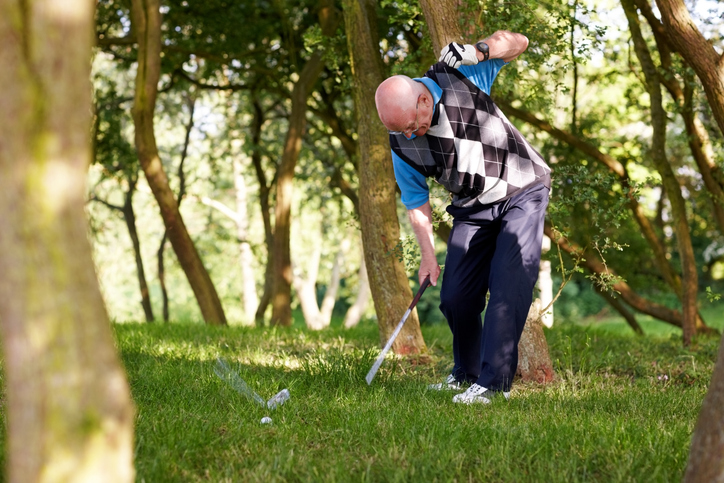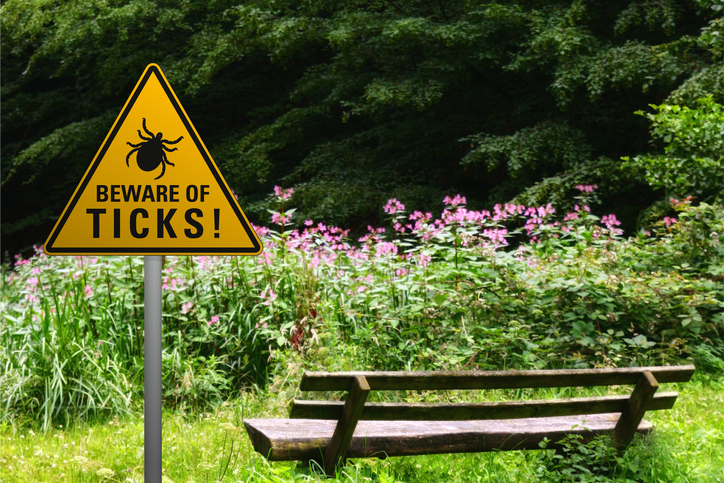Don’t Let the Great Outdoors Give You Lyme Disease This Summer

By Joy Stephenson-Laws, JD, Founder
To say that I love golf is an understatement. I have been playing golf for over 20 years. It is an activity that has kept me both physically and mentally fit. It is engaging and taught me humility, patience, discipline, perseverance and the ability to focus on improving my thinking in order to be successful both at the sport and life. It also helps that the scenery when playing golf is usually beautiful.
(What’s the Secret to Longevity? It May Be Golf)
In addition, I really love that people can start and improve in this sport later in life. For example, I know people who started playing golf in their sixties and seventies.
(Why Golf May Be The Perfect Sport For Boomers)
If you are a regular golfer, you will know you also need to be especially proactive about preventing lyme disease.
(Lyme Disease: A Small Tick Bite Can Cause Big Problems)
“Golf courses can be risky. When golfers hit a golf ball into the brush, they leave the highly manicured golf course and go into the brush, which could be an area where there are a lot of ticks,” according to Nancy Shadick, a rheumatologist at Brigham and Women's Hospital and a clinical epidemiologist, who was interviewed by The Harvard Gazette about how to protect yourself against lyme disease this summer.
(No Vaccine For Lyme Disease, But Soon There May Be An Antibody Shot)

Professional golfer Jimmy Walker shared how he believed he contracted lyme disease on a hunting trip back in 2016.
“I felt relief once I was diagnosed with Lyme disease. When you figure out what’s wrong, you can be treated. I never saw a tick or a bite. I just couldn’t figure out what was wrong with me. It was a mystery,” Walker said, according to a report from Today’s Golfer.
Unfortunately, his wife Erin has also had to battle this awful illness.
“Erin says she probably got Lyme from a tick while walking a golf course. She also is a competitive horseback rider, which put her at higher risk for Lyme,” The Dallas Morning News reports.
Kids and summer camp.
If you have a child you plan on sending to camp this summer, it is especially important to be proactive. In 2019, a family sued a Connecticut summer camp for more than 40 million dollars when their 14-year-old daughter contracted lyme disease while under the camp’s supervision.
This all isn’t to say that we should avoid the outdoors or be fearful, however, it is ia good idea to be mindful and protect yourself. We are in the heart of tick season (which is April to September). You can review regions where medically important human-biting ticks mainly live in the United States on the Center for Disease Control and Prevention’s (CDC) website. The CDC also gives great tips on preventing tick bites. I also highly recommend checking out these older pH blogs:
- Ticks and Lyme Disease: 4 Tricks to Prevent Tick Bites
- Be Proactive About Lyme Disease
- Diagnosed With Alzheimer's, But It Was Really Tick-Borne Illness. Trust Your Gut, And Demand This Test
Although the only known treatment for lyme disease are antibiotics, it is important to fuel the body with nutrient-dense foods such as fruits and vegetables. Eating these healthy foods reduces inflammation in the body and helps the immune system do its best job at fighting off an infection.

Furthermore, replenish the nutrients, such as magnesium and vitamins C and D, because antibiotics deplete them from the body when you take them. Antibiotics can also wreak havoc on the gut microbiome, the community that consists of the trillions of microbes that live in the stomach and intestines.
Some people with lyme disease may have to take antibiotics for as long as a month, so it is especially important to eat healthy, nutritious foods and make sure that you are getting plenty of prebiotics and probiotics.
Take routine nutrient tests.
Finally, take routine nutrient tests in order to determine if you have any nutritional deficiencies or imbalances. The truth is that most of us do! If you have a deficiency or imbalance, a competent healthcare professional can work with you on making the necessary dietary changes and recommend quality supplements if necessary.
Enjoy your healthy life!
Disclaimer: This article is not intended to provide medical advice. Please consult with your doctor or another competent healthcare practitioner to get specific medical advice for your situation.
The pH professional health care team includes recognized experts from a variety of health care and related disciplines, including physicians, attorneys, nutritionists, nurses, and certified fitness instructors. This team also includes the members of the pH Medical Advisory Board, which constantly monitors all pH programs, products, and services. To learn more about the pH Medical Advisory Board, click here.







